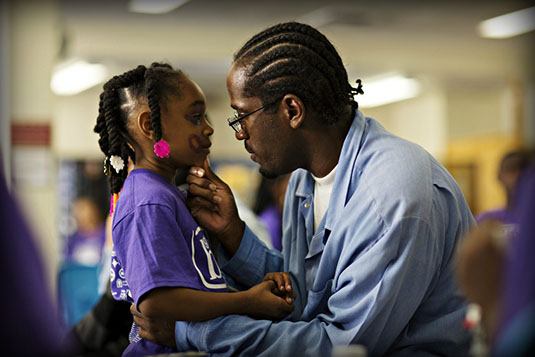ABOUT THE PROBLEM
Incarcerated Families
Currently, the United States has the highest rate of imprisonment in the world, and as incarceration rates increase, more and more children and families are affected. More than five million children in the United States has had a parent who lived with them go to jail or prison. This proportion is even higher among black, poor, and rural children. Research shows that children of incarcerated parents are among the highest at risk of becoming incarcerated themselves. The incarceration of a parent is considered by many researchers as an adverse childhood experience - potentially traumatic events that can have negative, lasting effects on health and well-being of a child, much like physical, emotional, or sexual abuse. The negative effects of parental incarceration are often compounded by other adverse experiences, including poverty, parental divorce and exposure to violence.
INTERGENERATIONAL Incarceration
- The purpose of this project is to study the correlation between Incarcerated Youth and Incarcerated Parents,
- To identify the contributing factors that may lead to Youth Incarceration,
- To explore the impact of absence caused by Parental Incarceration,
- To examine the complexities associated with Intergenerational Incarceration and the growing problem of over-incarceration,
- To help break the cycle of Intergenerational Incarceration,
- To help raise community awareness and knowledge through advocacy for Incarcerated Families,
- To strengthen families impacted by incarceration.
THE STUDY
 Having a parent in prison can have an impact on a child’s mental health, social behavior, and educational prospects. The emotional trauma that may occur and the practical difficulties of a disrupted family life can be compounded by the social stigma that children may face as a result of having a parent in prison or jail. Children who have an incarcerated parent may experience financial hardship that results from the loss of that parent’s income. Further, some incarcerated parents face termination of parental rights because their children have been in the foster care system beyond the time allowed by law or have questions about child support. These children require support from local, state, and federal systems to serve their needs.
Having a parent in prison can have an impact on a child’s mental health, social behavior, and educational prospects. The emotional trauma that may occur and the practical difficulties of a disrupted family life can be compounded by the social stigma that children may face as a result of having a parent in prison or jail. Children who have an incarcerated parent may experience financial hardship that results from the loss of that parent’s income. Further, some incarcerated parents face termination of parental rights because their children have been in the foster care system beyond the time allowed by law or have questions about child support. These children require support from local, state, and federal systems to serve their needs.
Children of incarcerated parents may also face a number of other challenging circumstances. They may have experienced trauma related to their parent’s arrest or experiences leading up to it. Children of incarcerated parents may also be more likely to have faced other adverse childhood experiences, including witnessing violence in their communities or directly in their household or exposure to drug and alcohol abuse.
THE CHILDREN OF INCARCERATED PARENTS
JOIN THE FIGHT
Stop the legacy Before It begins




